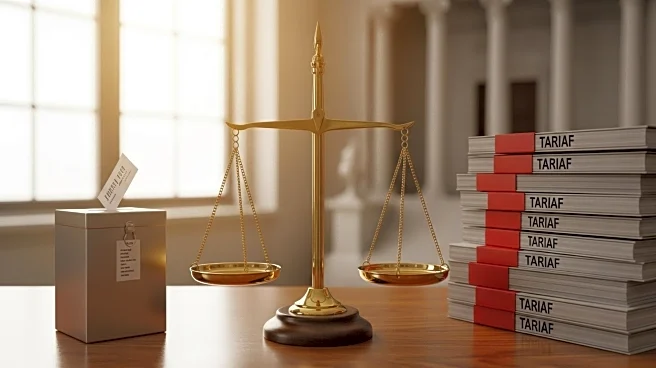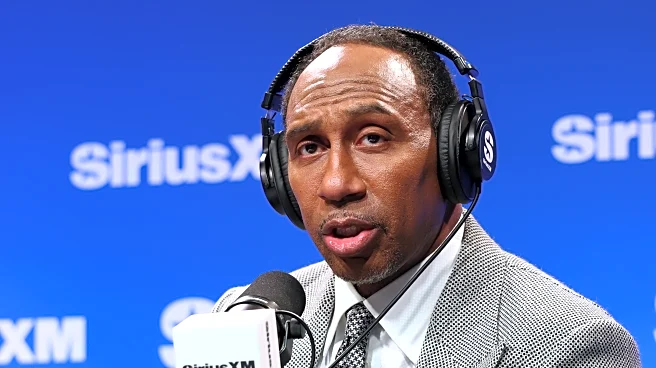What's Happening?
The U.S. Supreme Court is set to begin its new term, with 33 cases scheduled for argument this fall. Among the major cases are challenges related to transgender rights, voting rights, and tariffs imposed by President Trump. The court will consider whether states can prevent transgender students from competing in sports teams that align with their gender identity, a decision that could impact Title IX enforcement nationwide. Additionally, the court will hear a case from Louisiana that could potentially outlaw the use of race in drawing district lines, a move that could reshape voting rights and representation for minority groups. Another significant case involves President Trump's authority to impose tariffs on imports from friendly countries, a decision that could redefine presidential powers in foreign affairs and national security.
Why It's Important?
These cases have significant implications for U.S. society and governance. The decision on transgender athletes could affect school sports policies across the nation, influencing the rights of transgender students and the application of Title IX. The voting rights case could alter how districts are drawn, potentially affecting minority representation in government. The tariff case challenges the extent of presidential power, which could impact international trade relations and economic policy. Each decision will have far-reaching consequences for civil rights, political representation, and executive authority, shaping the legal landscape for years to come.
What's Next?
The outcomes of these cases will likely prompt reactions from various stakeholders, including civil rights groups, political leaders, and educational institutions. If the court rules in favor of restricting transgender athletes, schools may need to revise their sports policies. A decision against race-based districting could lead to redistricting efforts nationwide, affecting future elections. The tariff case could influence future presidential actions on trade, potentially leading to legislative efforts to clarify or limit executive powers. These decisions will be closely watched for their impact on U.S. law and policy.
Beyond the Headlines
The Supreme Court's decisions could trigger broader discussions on civil rights and the balance of power between the executive branch and other government entities. The cases may also influence public opinion and political discourse, particularly regarding the rights of minority groups and the scope of presidential authority. Long-term shifts in legal precedents could emerge, affecting how similar issues are addressed in the future.










